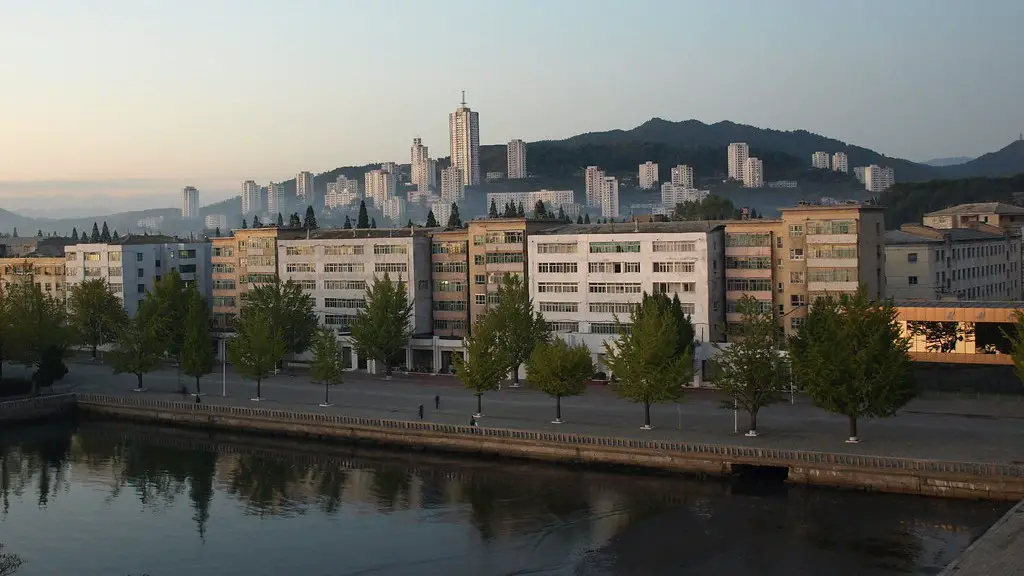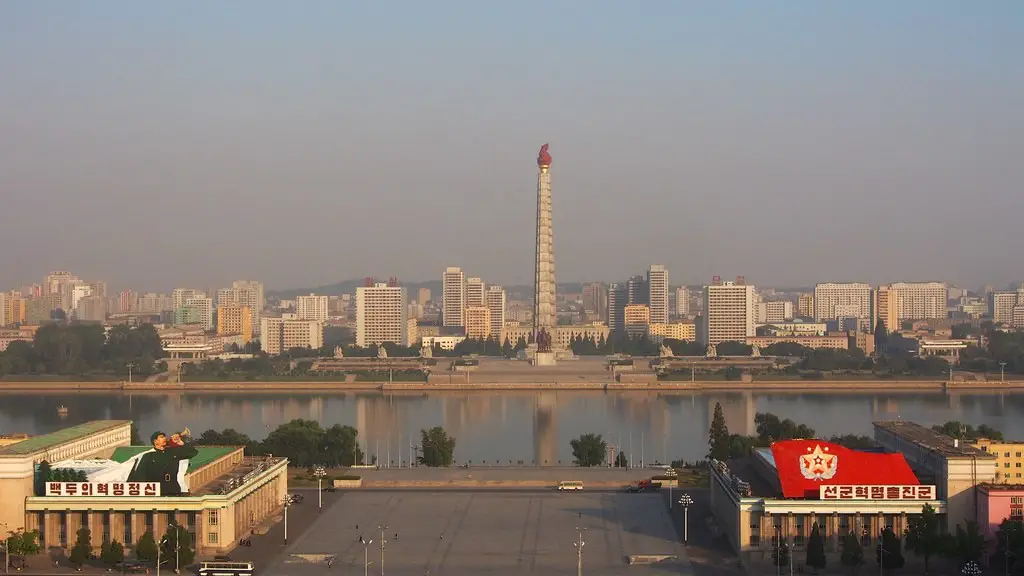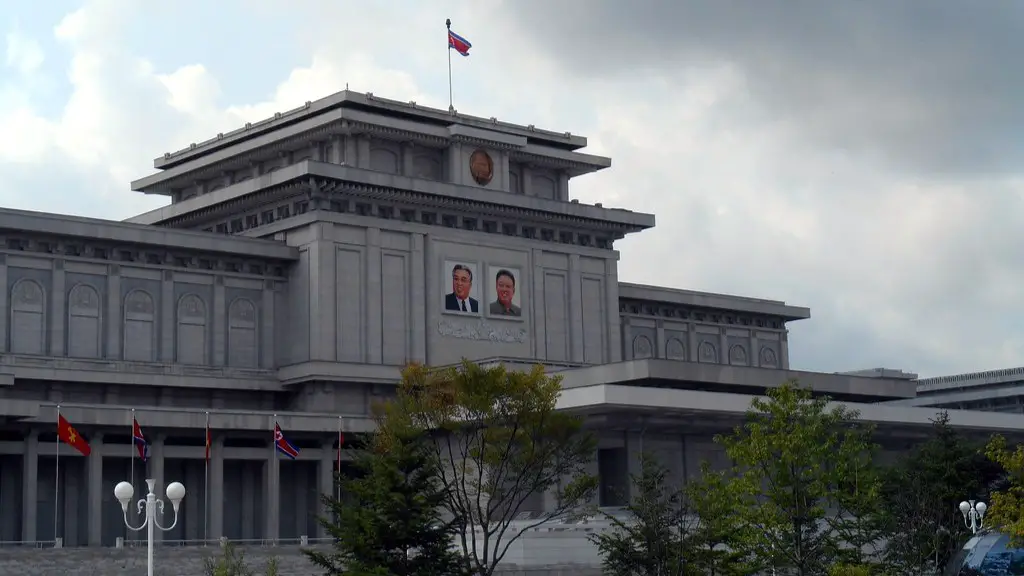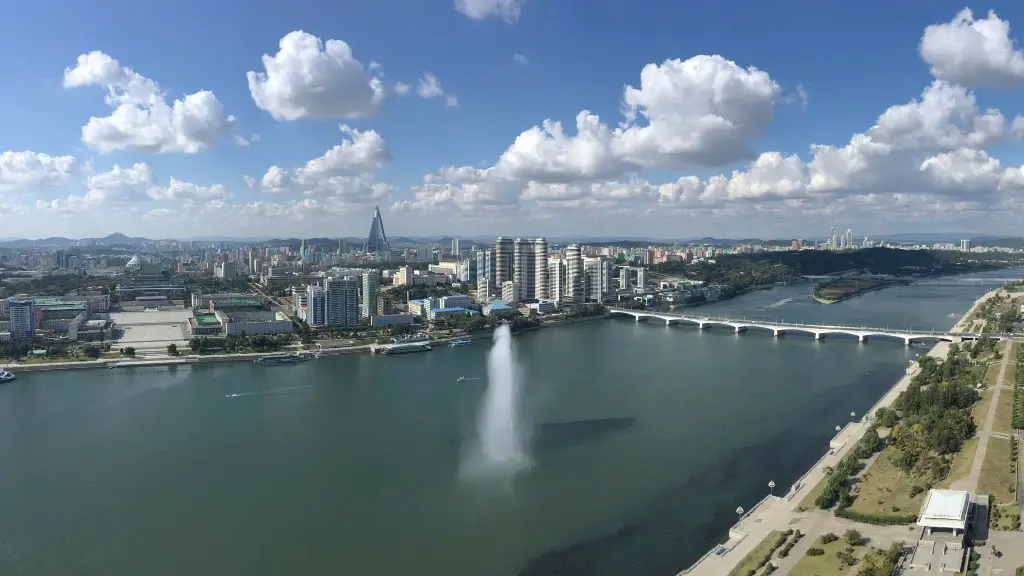Kim Il-Sung
In 1950, Kim Il-Sung was the leader of North Korea. Born in April 1912, Kim Il-Sung was the first leader of North Korea from 1948 until his death in 1994. A revolutionary leader, he initially rose to power as a leader of the Korean People’s Army. His legacy as the founder of North Korea is still felt today, but his time as leader wasn’t always basked in glory.
At the time, North Korea’s entire economy and military relied heavily on aid from the Soviet Union, and Kim Il-Sung was heavily dependent on this support. When the country finally won its independence from Japan during World War II, North Korea had been torn apart by famine and occupation. Under Kim Il-Sung’s leadership, North Korea underwent rapid development and industrialization, becoming an economically powerful nation in just a few decades.
Not only was Kim Il-Sung known for his impact on North Korea’s economy and military, he was also a surprisingly popular leader in the country. Millions of North Koreans adopted his personality cult, called the “cult of the leader”, which venerated Kim Il-Sung as a God-like figure. During his time as leader, Kim Il-Sung was a commander-in-chief in the Korean People’s Army, making him one of the longest-serving military leaders in the world.
Despite his legacy in the country, Kim Il-Sung is also remembered for his brutal tactics used in suppressing opposition and political opponents. His regime was faced with several coup attempts and popular uprisings, and as a response, he imposed heavy restrictions on freedom of expression and the press. In addition, he enacted a rigid system of surveillance, censorship, and arrests.
Kim Il-Sung also sought to expand his rule by engaging in military conflict with its neighbours. In 1950, Kim Il-Sung launched an invasion of South Korea, sparking the three-year Korean War. Though the war was technically a stalemate, Kim Il-Sung’s forces were able to make significant gains on the South, and they eventually divided the country in two.
At the end of the war, Kim Il-Sung’s forces had been pushed back to their pre-war boundaries and he was forced to focus on rebuilding North Korea’s economy. Under his leadership, North Korea developed a strong industrial base and its economy rapidly grew. North Korea’s economy even outperformed its neighbour to the south.
Relations with China and the Soviet Union
Throughout his reign as leader, Kim Il-Sung maintained friendly relations with both the Soviet Union and communist China. He maintained strong political and military alliance with the two countries, and trade was also established between them. Despite his alliance with the two countries, Kim Il-Sung never allowed them to interfere in North Korea’s internal affairs, and he even insisted on maintaining the country’s independent ideology.
Kim Il-Sung’s foreign policy focused on maintaining North Korea’s independence. In the early 1950s, he was able to negotiate a peace treaty with the United States and the United Nations and he personally attended peace talks in Switzerland. He was also able to win the Nobel Peace Prize in 1975 and he became the first communist leader to be awarded the title.
Despite his success in foreign affairs, Kim Il-Sung was also facing criticism from abroad due to his tyranny and human rights abuses. In the late 1980s, North Korea came under increased pressure from the international community and began to soften its policies. Kim Il-Sung ultimately stepped down from power in 1994 and a few months later, he died at the age of 82.
Successor
Kim Il-Sung was succeeded by his son, Kim Jong-Il, who took over as leader of North Korea in 1994. Despite his inexperience, Kim Jong-Il was able to maintain the country’s level of stability and develop the country’s economy. He also increased repression in the country, which further isolated North Korea from the rest of the world.
Kim Jong-Il continued to maintain his father’s economic policies and even improved on them. He was also able to forge stronger relations with South Korea and the United States. In 2000, he began an economic reform program known as the “Sunshine Policy” and he even began to open up the country to foreign investment. In 2011, he died at the age of 69.
Kim Jong-Un
Kim Jong-Un became the leader of North Korea in 2011 following the death of his father. Unlike his father and grandfather, Kim Jong-Un did not have the same level of experience and failed to continue the country’s economic progress. In 2012, he took a hardline stance against the United States and the international community. Under his rule, North Korea became increasingly isolated from the rest of the world.
Kim Jong-Un was also known for his aggressive foreign policy. He continued to expand North Korea’s nuclear program and even threatened to attack the United States and its allies. In recent years, he has been involved in a few summits with South Korea and the United States but has failed to make any real progress in reducing tensions in the region.
Today, Kim Jong-Un remains the leader of North Korea. He continues to maintain strict control over the country and its population. It remains to be seen what the future holds for North Korea under his rule.
North Korean Human Rights
Under the rule of the Kim family, North Korea has been accused of numerous human rights abuses. The country has been widely condemned for its use of forced labor, torture, political repression and executions. In addition, the government has been accused of using food as a political tool, denying its citizens access to proper nutrition.
Reporters Without Borders have called North Korea “the world’s most censored nation” due to their severe restrictions on freedom of speech and the press. Journalists and dissidents continue to face persecution and imprisonment in North Korea. In addition, the country has one of the most restrictive and oppressive Internet censorship regimes in the world.
The international community has strongly condemned North Korea’s human rights record. In 2014, the United Nations even adopted a resolution calling for North Korea to end its human rights abuses. Despite this, North Korea continues to deny any allegations of human rights abuses and its government continues to remain largely unaccountable.
North Korea in the International Community
In recent years, North Korea has sought to improve its relations with the international community. In 2018, the country held an historic summit with South Korea, with the two countries agreeing to increase cooperation and improve trade ties. In June, North Korea also held a summit with the United States in Singapore, with the two countries agreeing to work towards denuclearization.
Though relations with the United States and South Korea have improved, North Korea still maintains its nuclear weapons program. In addition, the country continues to be isolated from the rest of the world, with it being one of the few remaining communist countries in the world.
Despite its isolation, North Korea has slowly begun to open itself up to the world. It has become increasingly active in international sports and politics, and it has also begun to engage with international businesses. While the future of North Korea remains uncertain, it is clear that the country is looking to make positive changes.
Reform and Economic Development
Since Kim Jong-Un came to power, North Korea has undergone a few economic reforms. In 2013, the country announced a new economic reform plan, allowing for the creation of new businesses and more economic freedoms. This has led to the emergence of a small, but growing, middle class.
In recent years, the country has made attempts to attract more foreign investment. Some companies, such as Hyundai, have set up factories in North Korea. In addition, the country has sought to develop its tourism industry, with tourists from abroad now able to visit select cities in the country.
Though North Korea’s attempts to open up to the world have been met with some success, the country still remains largely isolated. It continues to face severe economic and political restrictions, making it difficult for the country to truly break free from its isolated state.
Future of North Korea
It remains to be seen what the future holds for North Korea. Kim Jong-Un has recently begun to loosen restrictions on the press and the internet, though it is unclear if this trend will continue. In addition, the country’s improving relations with the United States and South Korea could have a positive impact on the country’s economy.
In the long run, it is possible that North Korea could become an open and prosperous society. However, for that to happen, the country must overcome its isolation and open up to the world. Only time will tell if this is possible.





